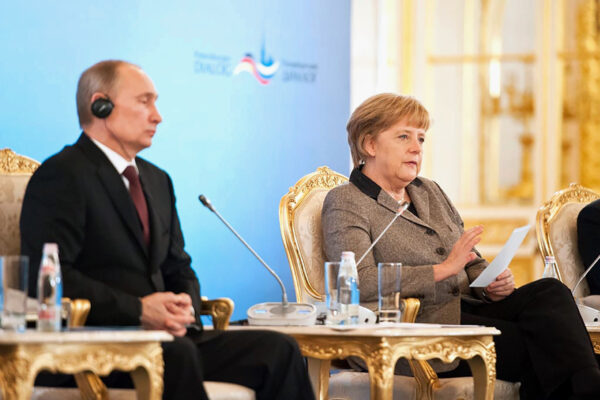
Frederick Studemann argues in the Financial Times that Germany’s Ostpolitik breathes its last in the Nord Stream 2 pipeline controversy.
Germany’s allies in Central European and North America have for years argued against the extension of the Baltic Sea pipeline, arguing — correctly — that it is a political project for Moscow. It doesn’t need the extra capacity. It wants to cut its dependence on Russia-wary transit states in Eastern Europe, most notably Ukraine.
1970s spirit
For Germany, the project, which doubles the capacity of the existing Nord Stream network, is an insurance policy against renewed conflict between Russia and its former Warsaw Pact vassals.
But, as Studemann points out, it is also informed by a 1970s spirit, when West German leaders argued that closer business relations with the communist bloc would inspire political change in the East.
A number of decisionmakers in Germany — in ministries, boardrooms and parts of the political establishment — see [Ostpolitik] as a successful model that is still relevant today. Cutting the “last cord” to Russia was not in the interests of Germany, opined one grandee of German punditry this week.
Climbdown
When France joined Central Europe and the United States in their resistance to Nord Stream 2, Germany relented. It has agreed to place the pipeline under EU market rules, which require the separation of ownership of the pipes from the supplier. And it announced plans to build two LNG terminals that could receive liquified natural gas from the United States.
It is not a total defeat for Germany. Nord Stream 2 will be completed. Gazprom, which would both own and operate the pipeline, is likely to challenge EU rules.
Times have changed
But it confirms what Studemann writes, and what I argued here in 2016: that Ostpolitik is not working.
The reason it did in the 1970s — when there were cultural and educational exchanges in addition to business ties that thawed relations with the Soviet Union and weakened Moscow’s ideological grip on Eastern Europe — was that East Germany and Russia sought Western recognition of the status quo in Eastern Europe.
The communists in East Germany desperately wanted to be taken seriously as a country. Before Ostpolitik, West Germany wouldn’t recognize them as anything more than a Soviet occupation zone.
Vladimir Putin is attempting the opposite from Soviet leaders: a revision of the post-Cold War order in Europe.
The dissolution of the Soviet Union and the Warsaw Pact left Europe whole and free. Now Russia is attacking the pillars on which a Europe whole-and-free is built: the EU, NATO, liberal democracy and the inviolability of national borders. Compromise and business-as-usual only encourage Putin to push harder.
